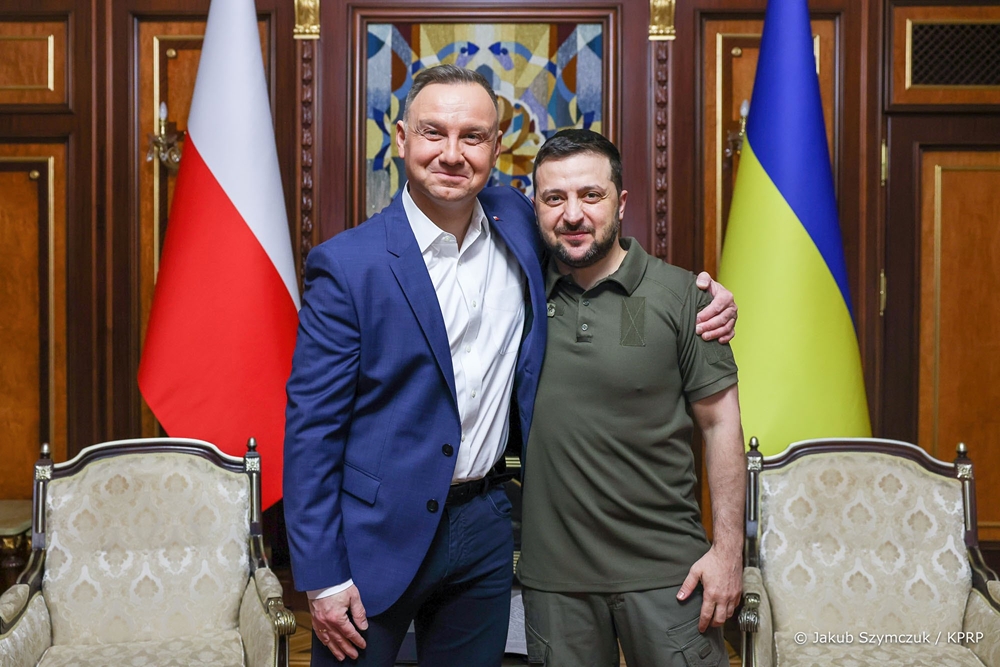The recent remarks made by Ukrainian President Volodymyr Zelensky during a UN session have stirred up considerable controversy in Poland. Interpreting Zelensky’s words, some in Poland feel accused of acting as Moscow’s agents and aiding Russia in its conflict with Ukraine, a claim that feels outlandish given Poland’s extensive military and humanitarian aid to Ukraine.
Critics argue that Polish foreign policy, often characterized by emotionality, extreme reactions and lack of reflection on consequences, might have contributed to this perception. They assert that Poland’s approach toward Kyiv was largely based on three tenets: love for Ukraine, trust in the U.S., and hostility toward Russia. These sentiments, critics argue, were perceived as absolute, uncompromising, and without alternatives.
Supported by the U.S. since February 2022, Poland has taken the moral high ground, often challenging other nations on their support for Ukraine against Russia — or lack thereof, which they deem a historical evil. While this stance earned Poland accolades in some liberal media circles, it also proved costly. Many EU partners viewed Poland’s attitude with growing irritation. Consequently, countries like France and Germany now accuse Poland of breaking solidarity with Ukraine by supporting the grain embargo.
Moreover, Poland’s overtly anti-Russian stance has drawn the ire of Moscow. Some observers noted that, in recent months, Poland appeared even more pro-Ukrainian and anti-Russian than Ukraine itself. This audacious attitude, based on the assumption that the U.S. would back Ukraine no matter what, could have dire repercussions for Poland.
Furthermore, no other nation has intertwined its sovereignty with Ukraine’s war situation as much as Poland. The Polish prime minister equated Polish sovereignty with Ukraine’s, and the Polish president even suggested that Poland represented only Ukrainian interests, assuming that a conflict with Kyiv was improbable.
Now, those politicians who were emblematic of Poland’s love for Ukraine find themselves in a precarious situation.
Lastly, despite Poland’s commitment, current indicators suggest that Polish companies might miss out on participating in Ukraine’s reconstruction. Instead, German companies or U.S. corporations linked with Democrats seem to be in line for that role.
Penny Pritzker, a former commerce secretary under Barack Obama and a member of the wealthy Pritzker family of Ukrainian-Jewish heritage, has been appointed the special representative for Ukraine’s reconstruction by the U.S. government.
Moreover, Larry Fink, the head of the American financial giant BlackRock, is regularly seen in meetings with President Zelensky. It’s evident who might benefit from the potential profits.
Despite its best intentions, Warsaw’s accomplishments in the east remain questionable.






